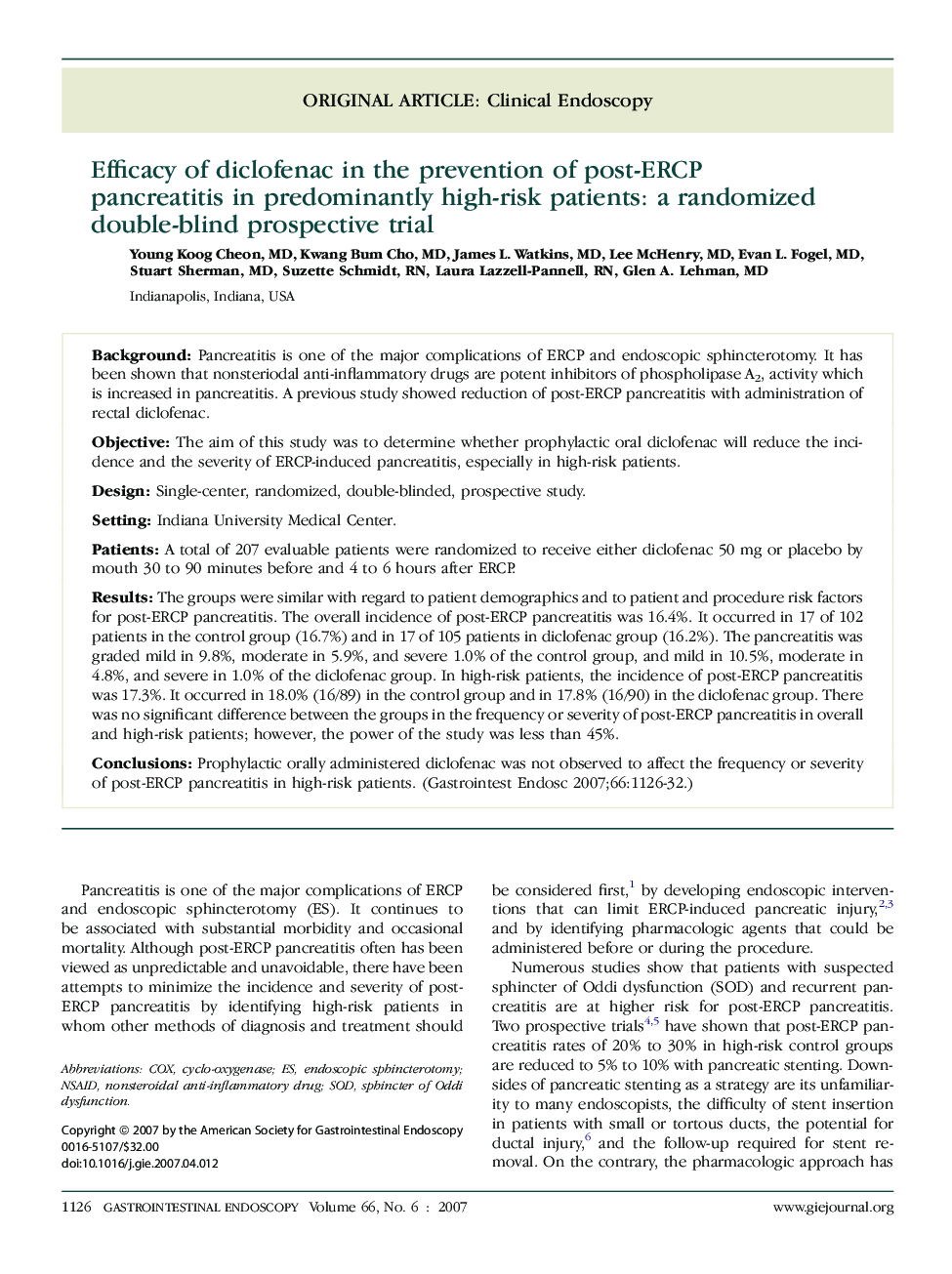| Article ID | Journal | Published Year | Pages | File Type |
|---|---|---|---|---|
| 3309017 | Gastrointestinal Endoscopy | 2007 | 7 Pages |
BackgroundPancreatitis is one of the major complications of ERCP and endoscopic sphincterotomy. It has been shown that nonsteriodal anti-inflammatory drugs are potent inhibitors of phospholipase A2, activity which is increased in pancreatitis. A previous study showed reduction of post-ERCP pancreatitis with administration of rectal diclofenac.ObjectiveThe aim of this study was to determine whether prophylactic oral diclofenac will reduce the incidence and the severity of ERCP-induced pancreatitis, especially in high-risk patients.DesignSingle-center, randomized, double-blinded, prospective study.SettingIndiana University Medical Center.PatientsA total of 207 evaluable patients were randomized to receive either diclofenac 50 mg or placebo by mouth 30 to 90 minutes before and 4 to 6 hours after ERCP.ResultsThe groups were similar with regard to patient demographics and to patient and procedure risk factors for post-ERCP pancreatitis. The overall incidence of post-ERCP pancreatitis was 16.4%. It occurred in 17 of 102 patients in the control group (16.7%) and in 17 of 105 patients in diclofenac group (16.2%). The pancreatitis was graded mild in 9.8%, moderate in 5.9%, and severe 1.0% of the control group, and mild in 10.5%, moderate in 4.8%, and severe in 1.0% of the diclofenac group. In high-risk patients, the incidence of post-ERCP pancreatitis was 17.3%. It occurred in 18.0% (16/89) in the control group and in 17.8% (16/90) in the diclofenac group. There was no significant difference between the groups in the frequency or severity of post-ERCP pancreatitis in overall and high-risk patients; however, the power of the study was less than 45%.ConclusionsProphylactic orally administered diclofenac was not observed to affect the frequency or severity of post-ERCP pancreatitis in high-risk patients.
